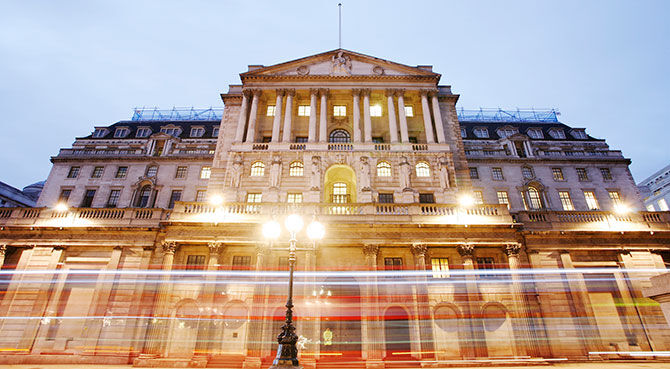Banks will get protection in case of Brexit ‘shock’
Mark Carney has announced the Bank of England’s plan to protect banks from direct fallout of Brexit. Speaking at the same conference Theresa May downplayed a potential trade war with the US.

Safeguarding banks from Brexit fallout
Sitting alongside Prime Minister Theresa May at a conference marking the 20th anniversary of the BoE’s independence from government, Mr Carney said the UK’s economic prosperity would hinge not just on the government’s fiscal policies but also the final Brexit deal.“Even though monetary policy cannot prevent the weaker real income growth likely to accompany the transition to new trading arrangements with the EU, it can influence how this hit to incomes is distributed between job losses and price rises,” he said.“We will continue to assess and express our independent assessment of the risks associated with Brexit. We will also use all our powers, consistent with our remits, to mitigate those risks and to smooth the adjustment to new opportunities.“Monetary policy will be set to achieve the inflation target in a way that helps smooth real adjustment in the economy and supports jobs in the wake of very large external forces.“Banks will be capitalised so that they can withstand any severe shock that could be associated with Brexit – however unlikely – and still meet demand for credit.”In her speech, Mrs May rejected claims made a day earlier by Jeremy Corbyn, leader of the Labour Party, that capitalism was facing “a crisis of legitimacy” by insisting that a free market economy represented the “greatest agent of collective human progress ever created”.She said that some “advocate ideologically extreme policies which have long ago been shown to fail and which are failing people today in places like Venezuela”, adding, “My argument has always been that if you want to preserve and improve a system which has delivered unparalleled benefits you have to take seriously its faults and do all you can to address them.“Not to do so would put everything we have achieved together as a country at risk. It would lead to a wider loss of faith in free markets and risk a return to the failed ideologies of the past. Far from somehow protecting the poorest and most vulnerable in society, that outcome would surely hurt them the most.”Mrs May said raising living standards and protecting jobs had to be the central aim of all economic policy. “A free market economy, operating under the right rules and regulations, is the greatest agent of collective human progress ever created,” she said.“It was the new combination which led societies out of darkness and stagnation and into the light of the modern age.”Bombardier row with the US played down
In a question-and-answer session, Mrs May played down talk of a trade war with the US because of the row over the C-series airliner built by Canadian manufacturer Bombardier. Boeing maintains that the plane, whose wings are built at a factory in Belfast, receives unfair subsidies from the Canadian and UK governments and has won an initial US Department of Commerce ruling imposing a 220 per cent tariff on exports of the plane to America.Related stories:
- Brexit: the great relocation battle
- Brexit talent challenge: strategies and approaches
- Deutsche Bank warns of post-Brexit labour 'shock'
However, the prime minister has said that, unless the tariffs are dropped, it could threaten future purchases of Boeing aircraft by the UK.“On the wider issue, I think that there is a real challenge for us globally today because I think there are aspects of protectionism creeping in around the world,” she said.“I want the UK to be a global champion of free trade because I think those of us who believe in free trade need to stand up and not just explain its wider benefits, but help to explain its benefits to individuals.“What I would say in relation to Boeing is, of course, we have a long-term partnership with Boeing – various aspects of government – and this is not the sort of behaviour we expect from a long-term partner. It undermines that partnership.”
Read David Sapsted's article on Brexit: The great relocation battle – which discusses the tussle for European agencies relocating post-Brexit – in the Autumn 2017 issue of Relocate Magazine.
For related news and features, visit our Brexit section.Access hundreds of global services and suppliers in our Online Directory
 Get access to our free Global Mobility Toolkit
Get access to our free Global Mobility Toolkit 
©2025 Re:locate magazine, published by Profile Locations, Spray Hill, Hastings Road, Lamberhurst, Kent TN3 8JB. All rights reserved. This publication (or any part thereof) may not be reproduced in any form without the prior written permission of Profile Locations. Profile Locations accepts no liability for the accuracy of the contents or any opinions expressed herein.






































